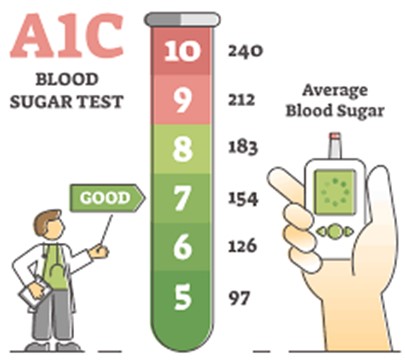ATI PN Adult Medical Surgical 2020 with NGN
ATI PN Adult Medical Surgical 2020 with NGN ( 78 Questions)
A nurse is caring for a client who has partial-thickness burns on 50% of his body and is receiving total parenteral nutrition. The nurse should actively monitor the client for which of the following?
reason: Increased serum glucose levels are a common complication of total parenteral nutrition (TPN), which is a form of intravenous feeding that provides high amounts of calories, proteins, and other nutrients. TPN can cause hyperglycemia, especially in clients who have stress, infection, or diabetes. The nurse should monitor the client's blood glucose levels regularly and adjust the infusion rate or insulin dosage as prescribed.

reason: Intermittent abdominal pain is not a typical complication of TPN, but it may indicate other problems such as bowel obstruction, perforation, or ischemia. The nurse should assess the client's abdomen for distension, tenderness, rigidity, or guarding and report any abnormal findings to the provider.
reason: Absent bowel sounds are not a direct complication of TPN, but they may indicate paralytic ileus, which is a temporary loss of bowel motility. Paralytic ileus can occur after surgery, trauma, or burns and can cause nausea, vomiting, constipation, or abdominal distension. The nurse should auscultate the client's bowel sounds every 4 hr and encourage early ambulation and oral intake as tolerated.
reason: Decreased calcium levels are not a common complication of TPN, but they may occur in clients who have hypoparathyroidism, renal failure, or malabsorption. Low calcium levels can cause muscle cramps, tetany, seizures, or cardiac arrhythmias. The nurse should monitor the client's serum calcium levels and administer calcium supplements as prescribed.
Choice A reason: Increased serum glucose levels are a common complication of total parenteral nutrition (TPN), which is a form of intravenous feeding that provides high amounts of calories, proteins, and other nutrients. TPN can cause hyperglycemia, especially in clients who have stress, infection, or diabetes. The nurse should monitor the client's blood glucose levels regularly and adjust the infusion rate or insulin dosage as prescribed.
Choice B reason: Intermittent abdominal pain is not a typical complication of TPN, but it may indicate other problems such as bowel obstruction, perforation, or ischemia. The nurse should assess the client's abdomen for distension, tenderness, rigidity, or guarding and report any abnormal findings to the provider.
Choice C reason: Absent bowel sounds are not a direct complication of TPN, but they may indicate paralytic ileus, which is a temporary loss of bowel motility. Paralytic ileus can occur after surgery, trauma, or burns and can cause nausea, vomiting, constipation, or abdominal distension. The nurse should auscultate the client's bowel sounds every 4 hr and encourage early ambulation and oral intake as tolerated.
Choice D reason: Decreased calcium levels are not a common complication of TPN, but they may occur in clients who have hypoparathyroidism, renal failure, or malabsorption. Low calcium levels can cause muscle cramps, tetany, seizures, or cardiac arrhythmias. The nurse should monitor the client's serum calcium levels and administer calcium supplements as prescribed.
